Artist Isaac Zavale's work colourfully represents this, and we were pleased to see his portraits of Johannesburg get a nod from the global WeTransfer's art platform, WePresent recently (find the story in full here). It gave us a reason to delve further. Represented by edgy Kalashnikovv Gallery, Zavale, a former Joburg resident, now resides in Berlin, but it's clear from the interview he gave to WePresent that he carries Joburg with him wherever he goes.
"These streets made me, and they carry the history of South Africa." – Isaac Zavale
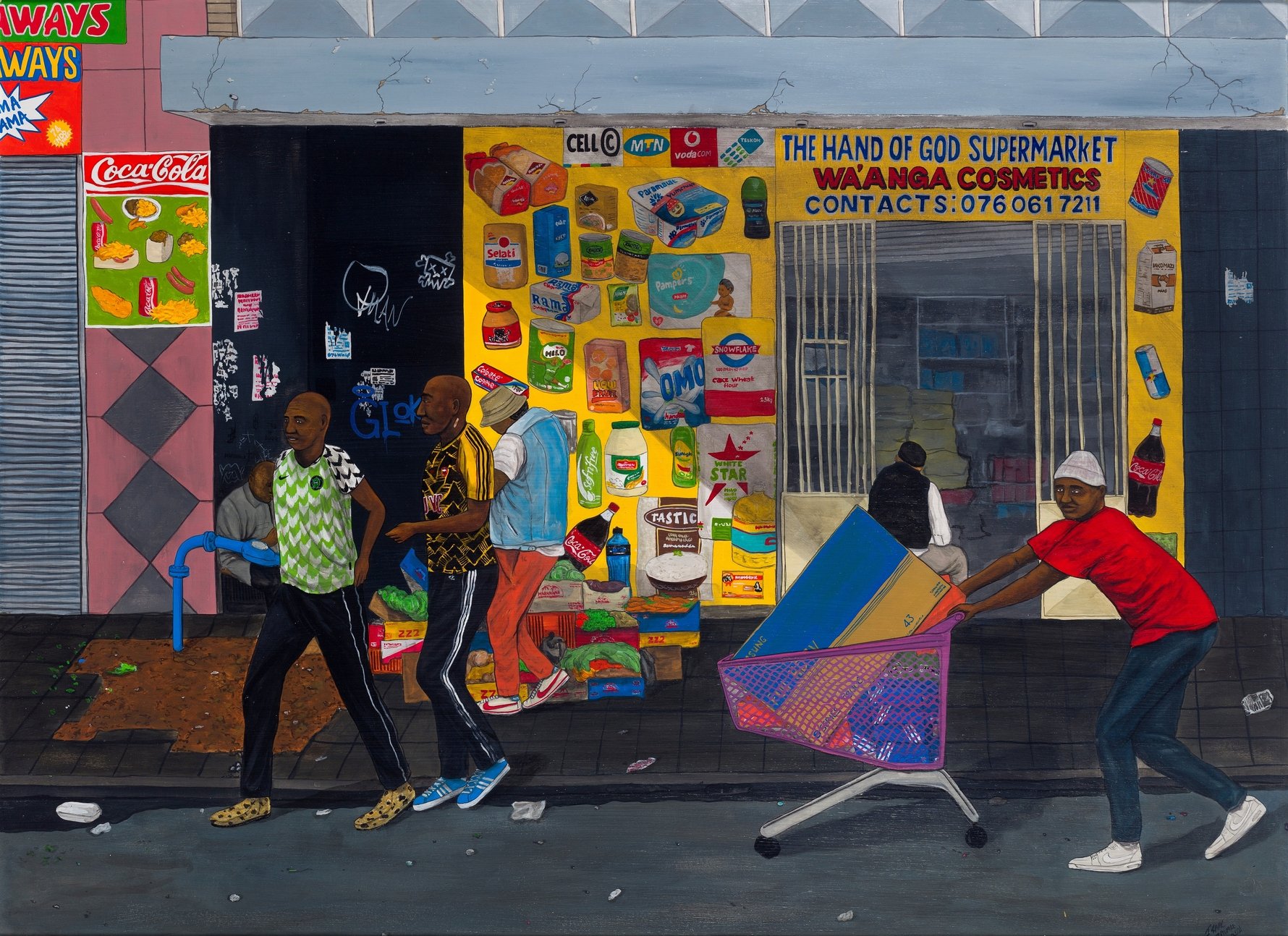
Zavale's paintings crystallise the city in all its grit and glory; they read as photographic scenes of the City Centre with its unique visual lexicon, idiosyncrasies, and endlessly interesting cast of characters. "I’m interested in portraying the grunge and the dirt of the city, how people still take it – even though it’s decaying – and give it life and character,” Zavale tells WePresent.
Those who live, or work in and commute through, Joburg's historical city know that trash on the streets is rife; if we could paint, we'd be tempted to enact an imaginative clean-up. Yet Zavale resists the allure of romanticisation. In his work, crumbling facades and litter make straightforward appearances, while he's quick to acknowledge what Joburg gives and holds, despite its failings.
"These streets made me, and they carry the history of South Africa," the artist says. He doesn't paint through rose-tinted glasses, yet Zavale deviates from the reference photos he takes at times, adding subtle details to scenes that up the ante and are politically charged.
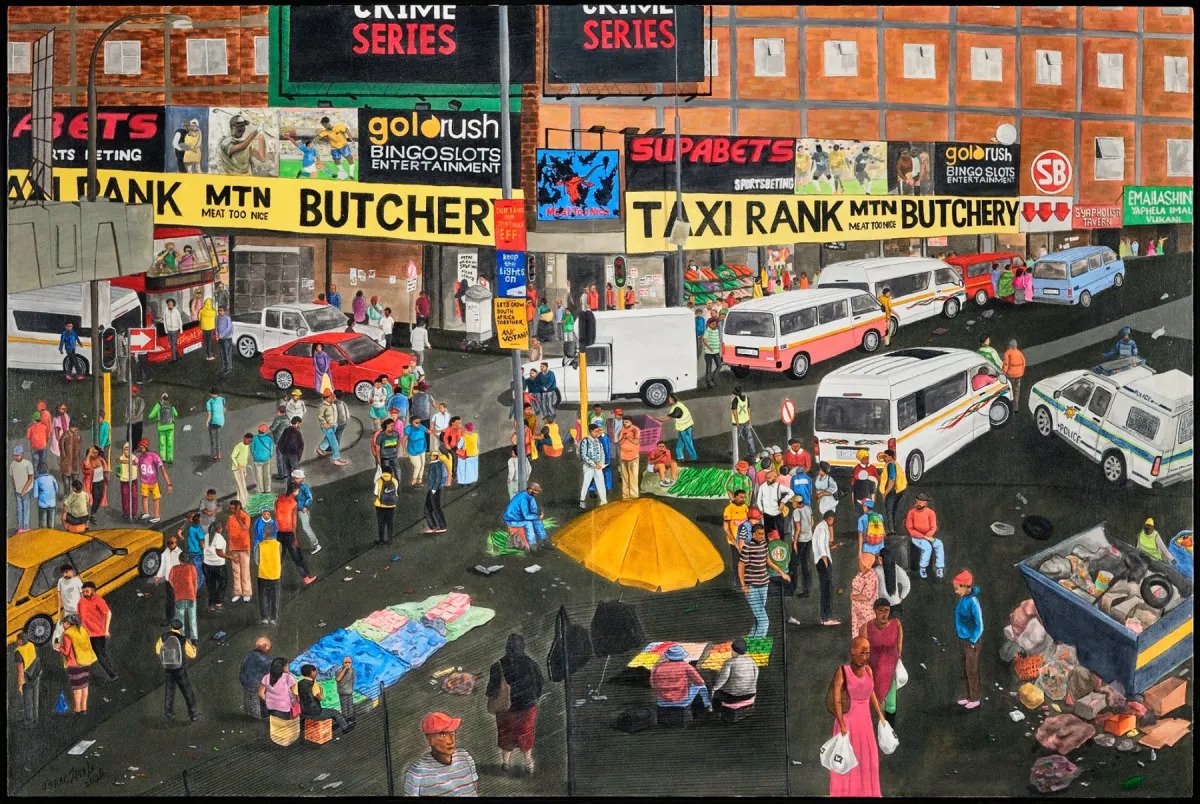
With Joburg's black population most affected by high rates of unemployment, Zavale's paintings hero the resourceful ways that people make their living in the city. Informal traders, recyclers, and taxi drivers feature in works like Gold Rush, Zavale's rendition of the Noord Taxi Rank on Plein Street, illustrating the "hustle culture" that transforms so many of the city's streets into bustling sites of enterprise.
'For Zavale, living in Berlin has highlighted how black and white people interact in Johannesburg with relative ease. "I feel like people are becoming more open to sharing about their cultures. It’s easier for both sides to understand each other more deeply".'
The title of this work plays on Joburg's nickname as the City of Gold. "Now the gold is gone," Zavale says. "But black people are still here, using the space as a trading spot, hustling in a different way: selling fruits and vegetables, owning a car wash or hair salon or selling cigarettes in a mobile kiosk on the street." Aesthetically, Zavale's works draw on his ongoing fascination with street signage in the form of colourful hand lettering and illustrations; the kind you might see outside spaza shops and corner stores.
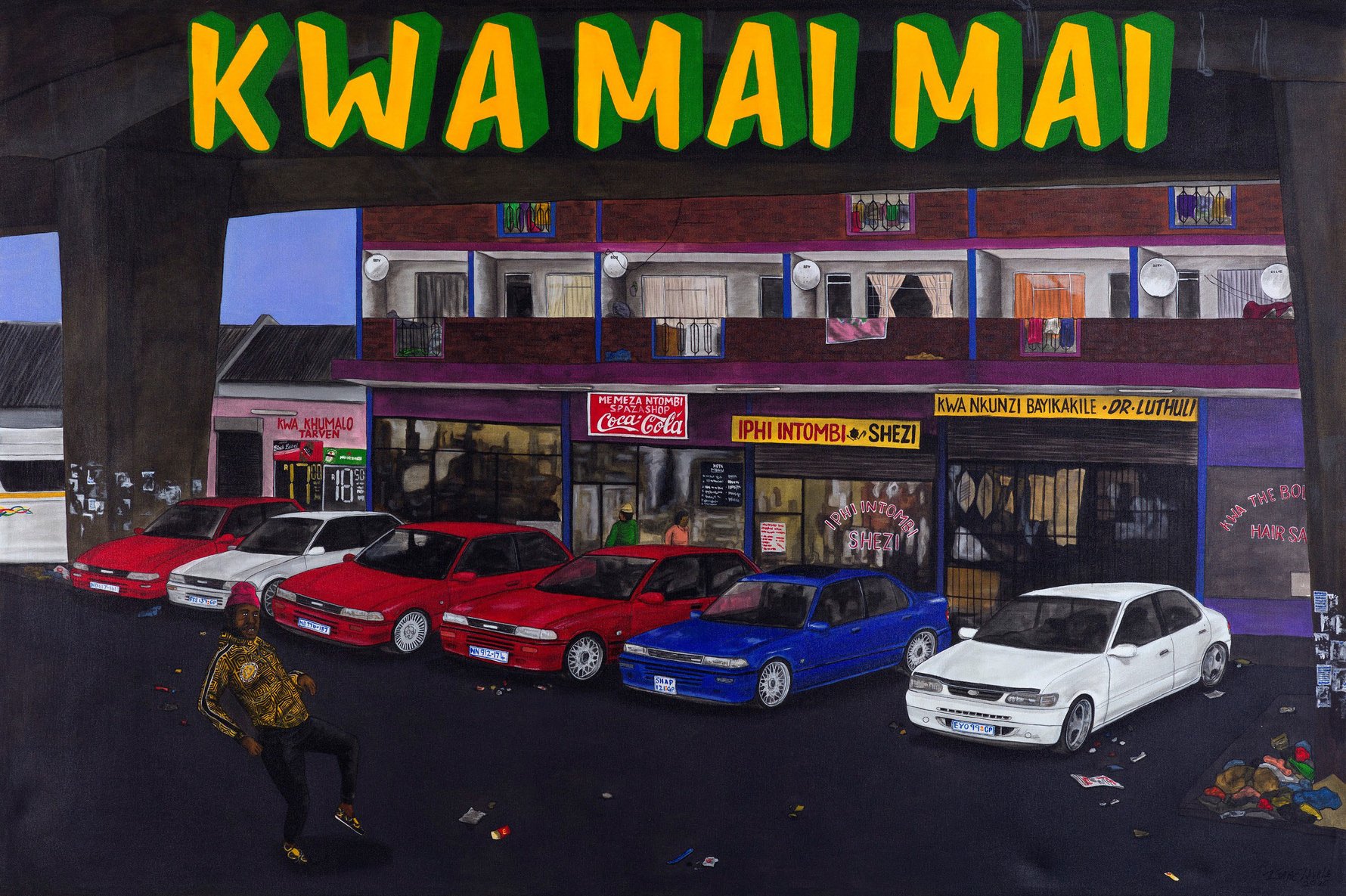
The Mozambican-born South African artist (Zavale and his family moved to the East Rand in 1989) now lives and works in Berlin, but continues to centre Joburg in his practice. In a place like South Africa, and Joburg in particular, which has prompted so many people to cross borders with the promise of a more prosperous future, Zavale asks, "Who is really an insider in South Africa?" He notes the multitude of cultures that shaped our country post-apartheid, and continue to influence our public spaces today.
For Zavale, living in Berlin has highlighted how black and white people interact in Johannesburg with relative ease. With enforced racial segregation under the apartheid government, this wasn't always the case. "Now I feel like people are becoming more open to sharing about their cultures. It’s easier for both sides to understand each other more deeply."
True understanding is the greatest hope we have towards a future where all South Africans are afforded the dignity they deserve. To this aim, we appreciate Zavale's paintings as authentic portraits of Joburg as a city and home to many. Resilient, vibrant, challenging, and infinitely complex, with potential on every street corner.
The work speaks for itself – keep scrolling for Zavale's quintessential Joburg scenes.
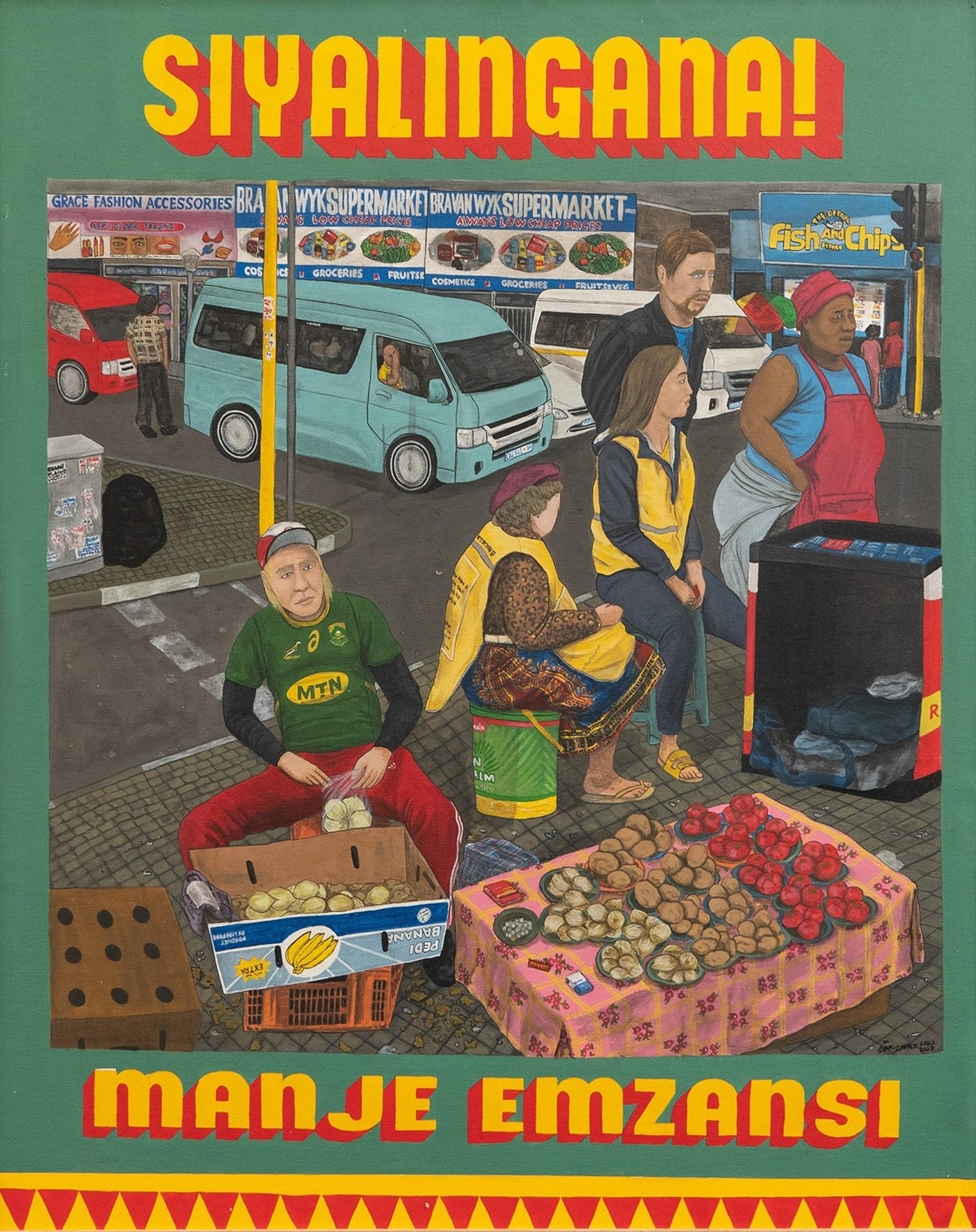
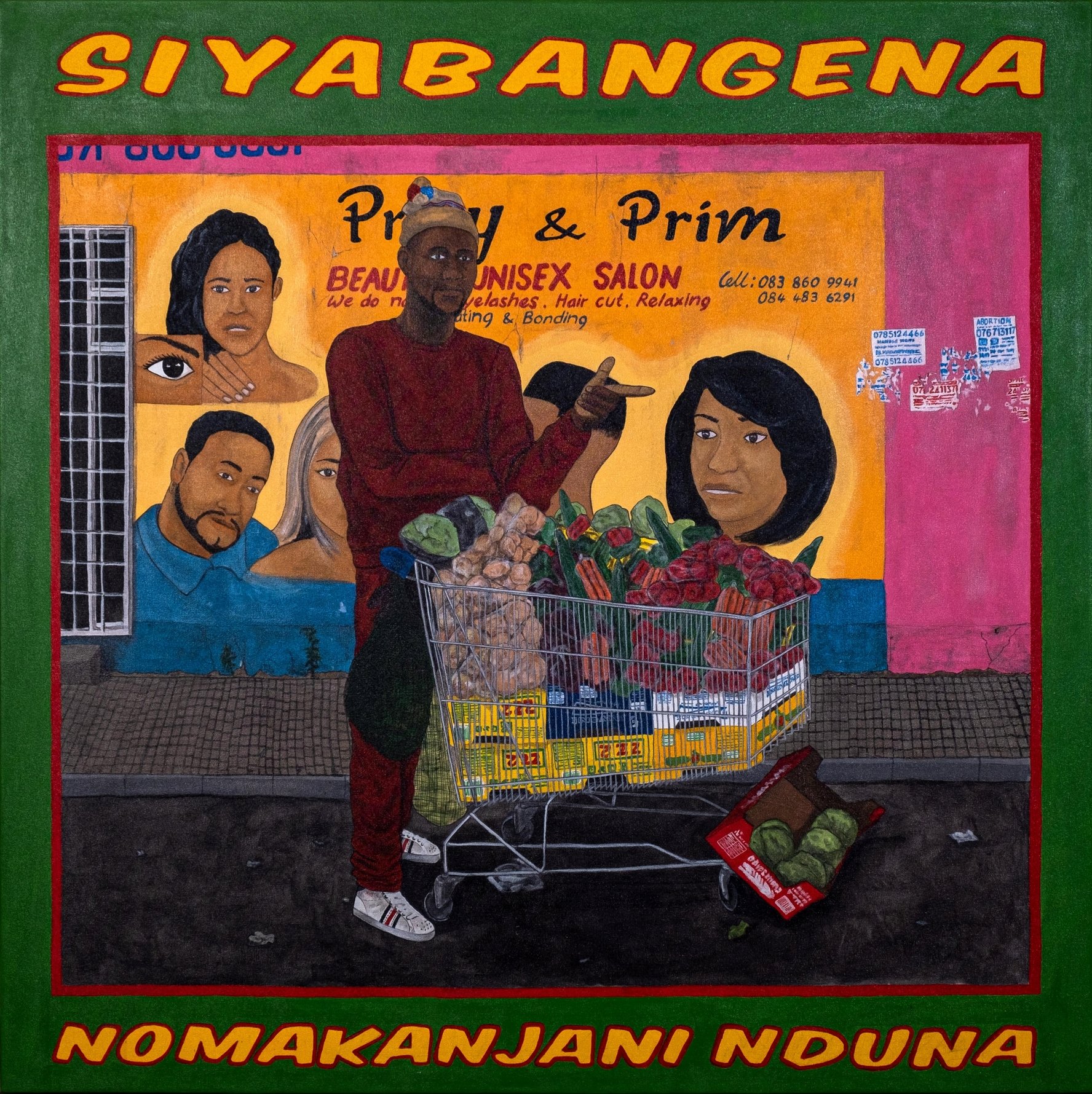
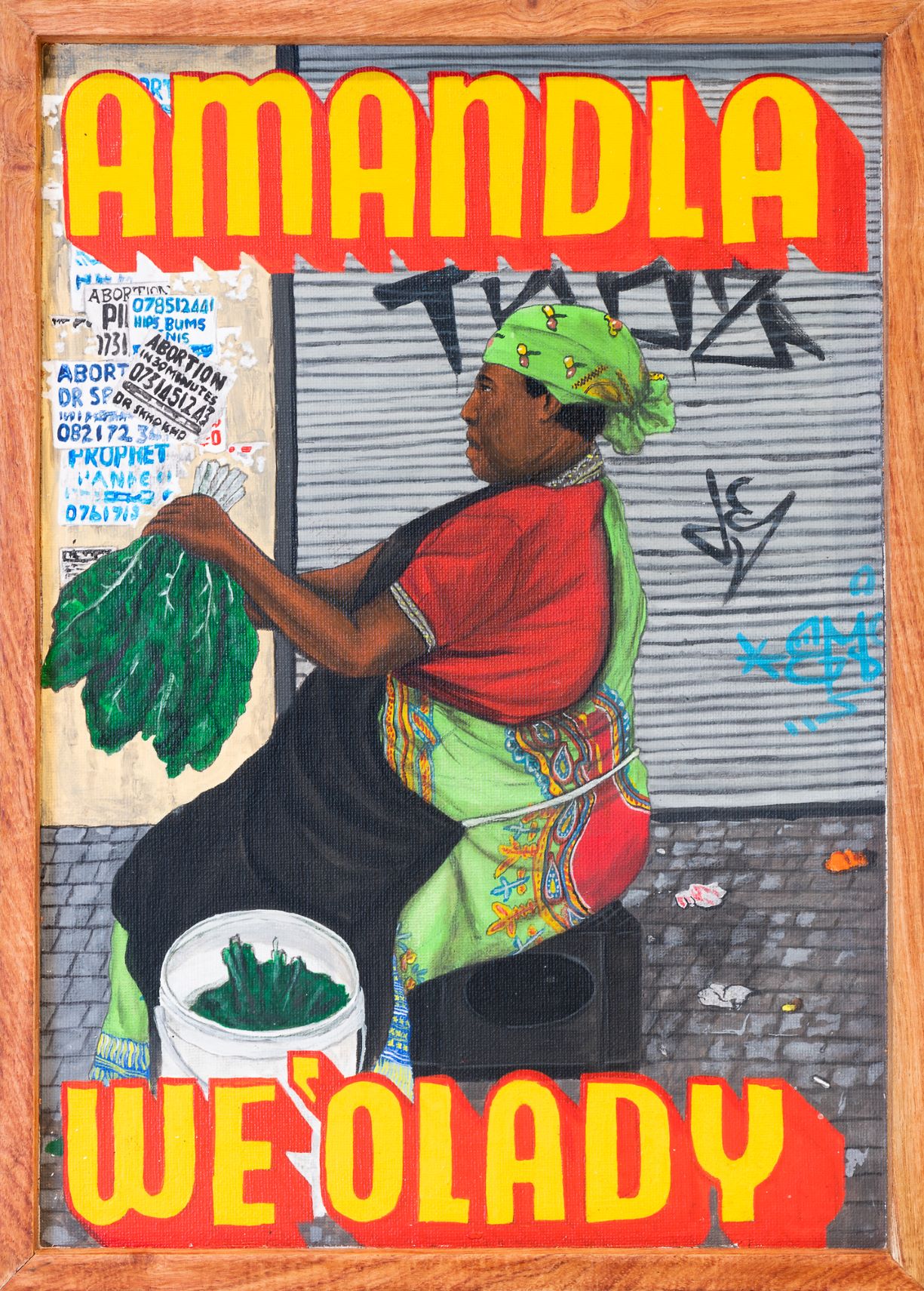
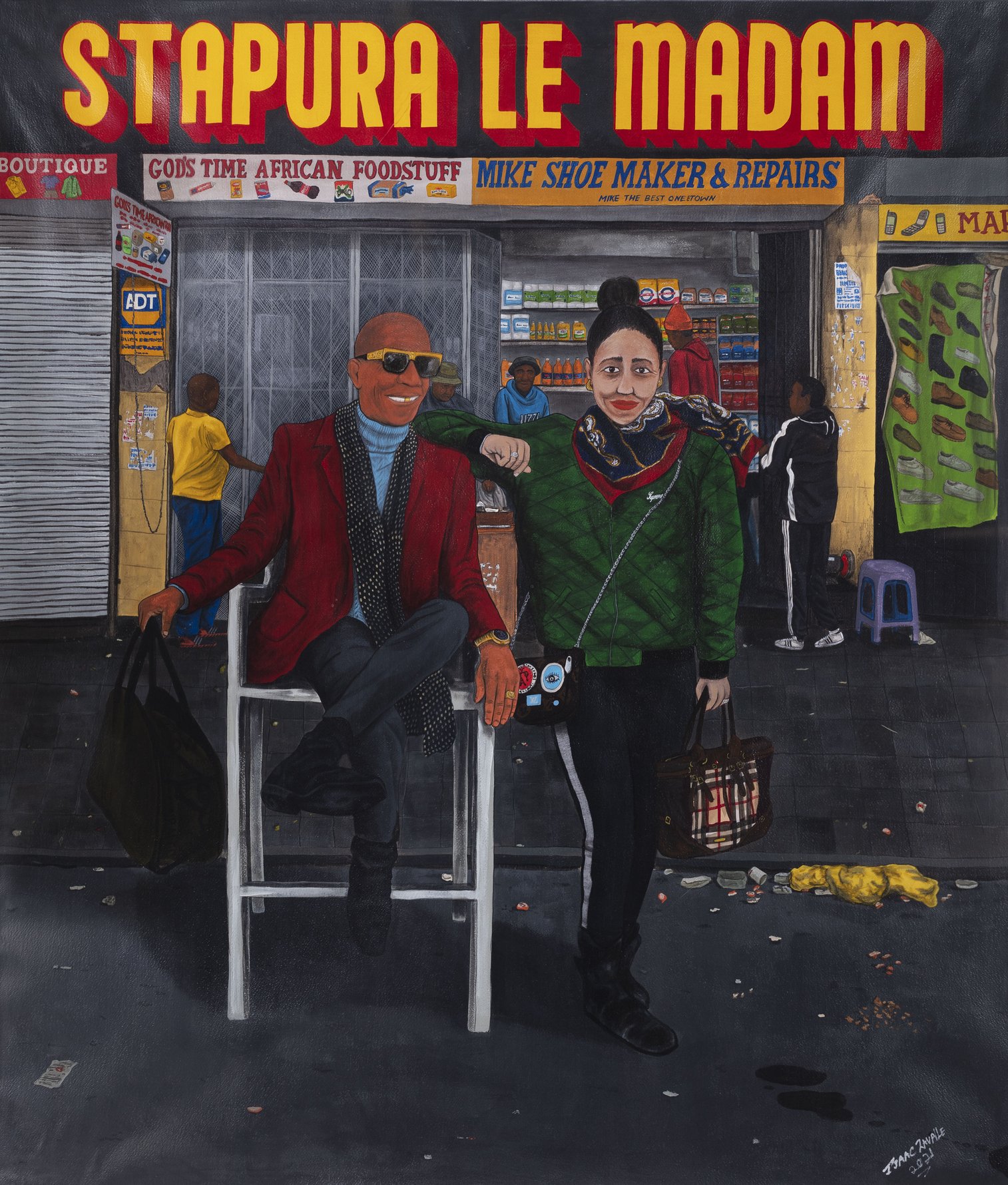
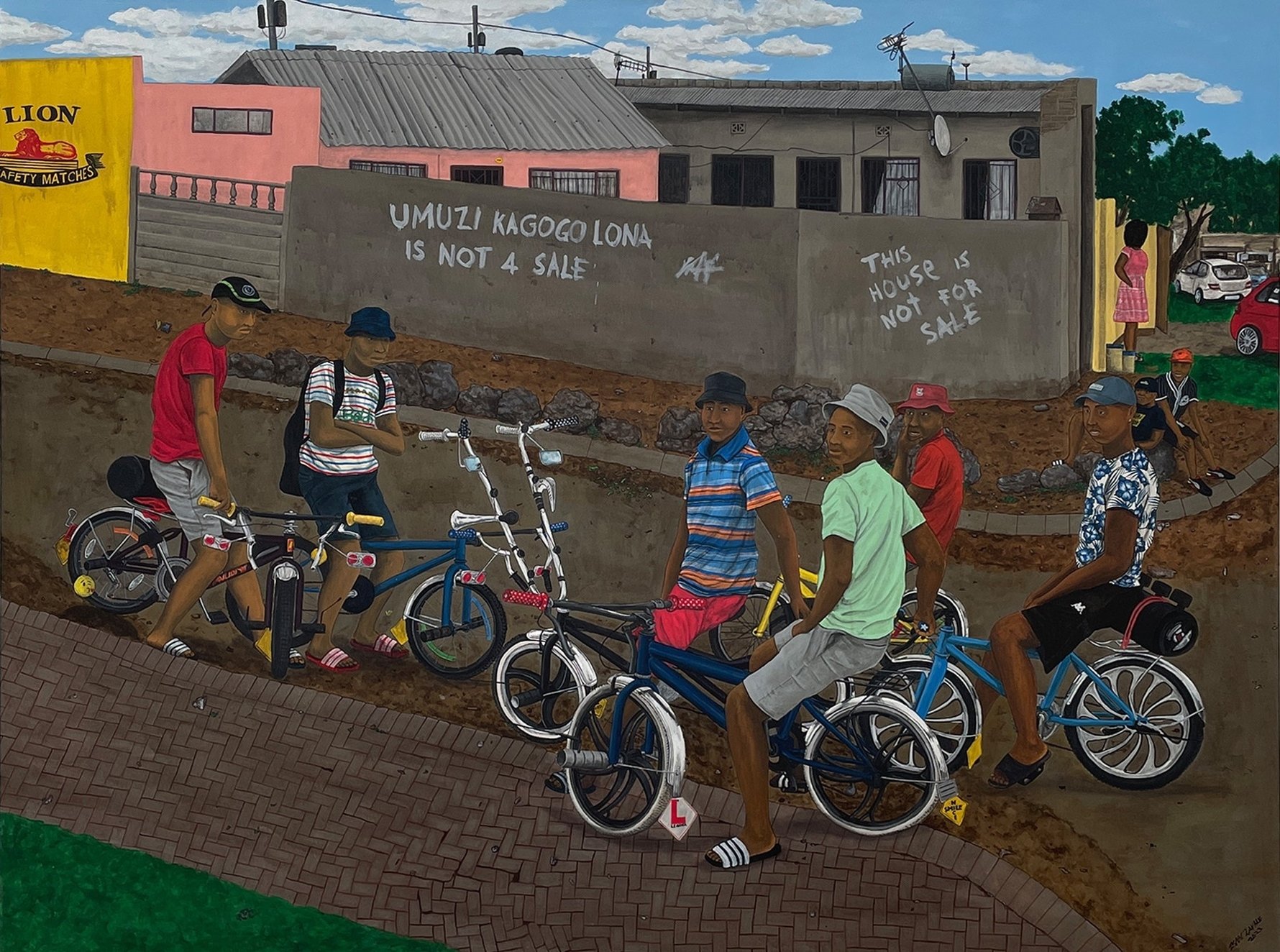
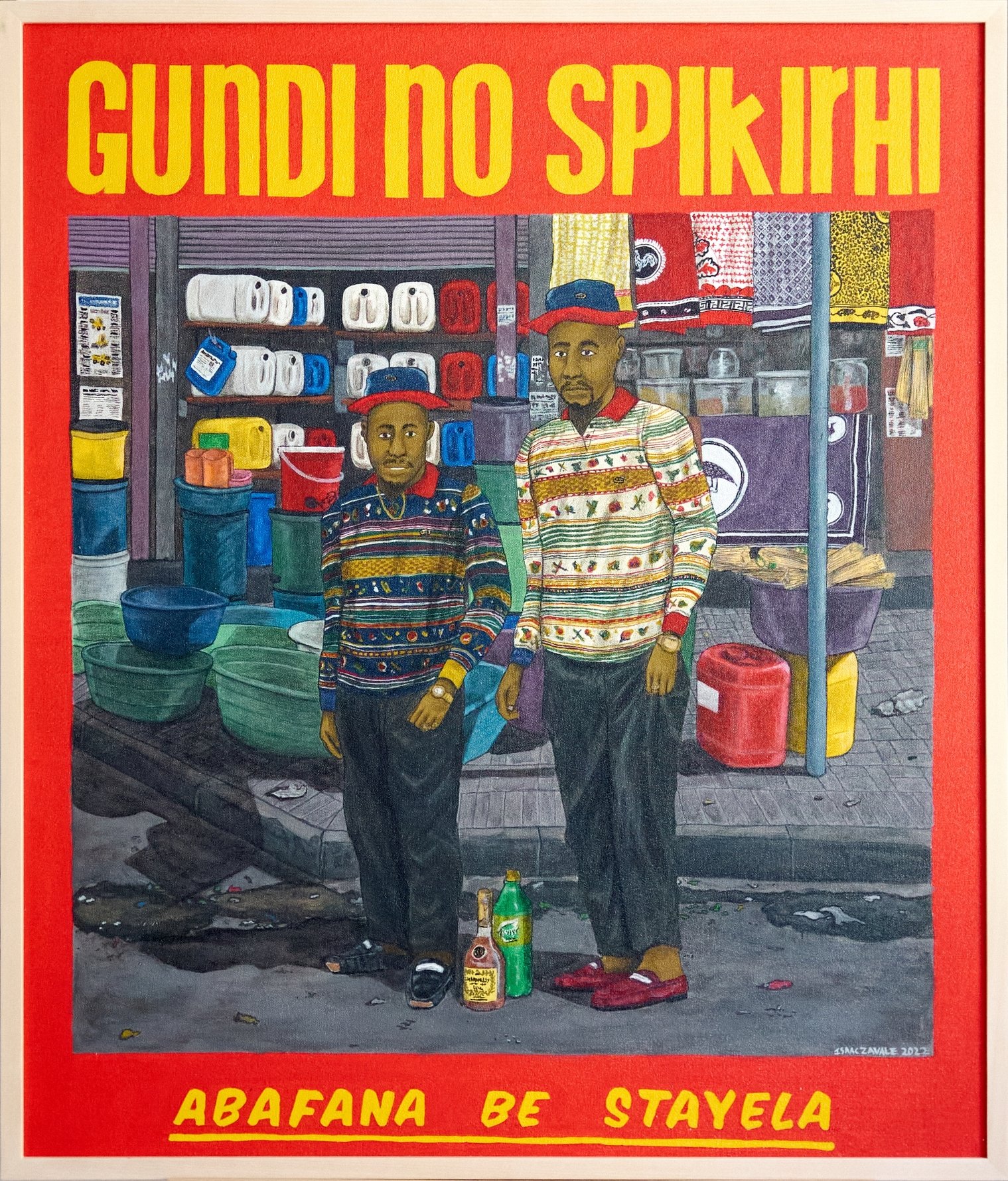
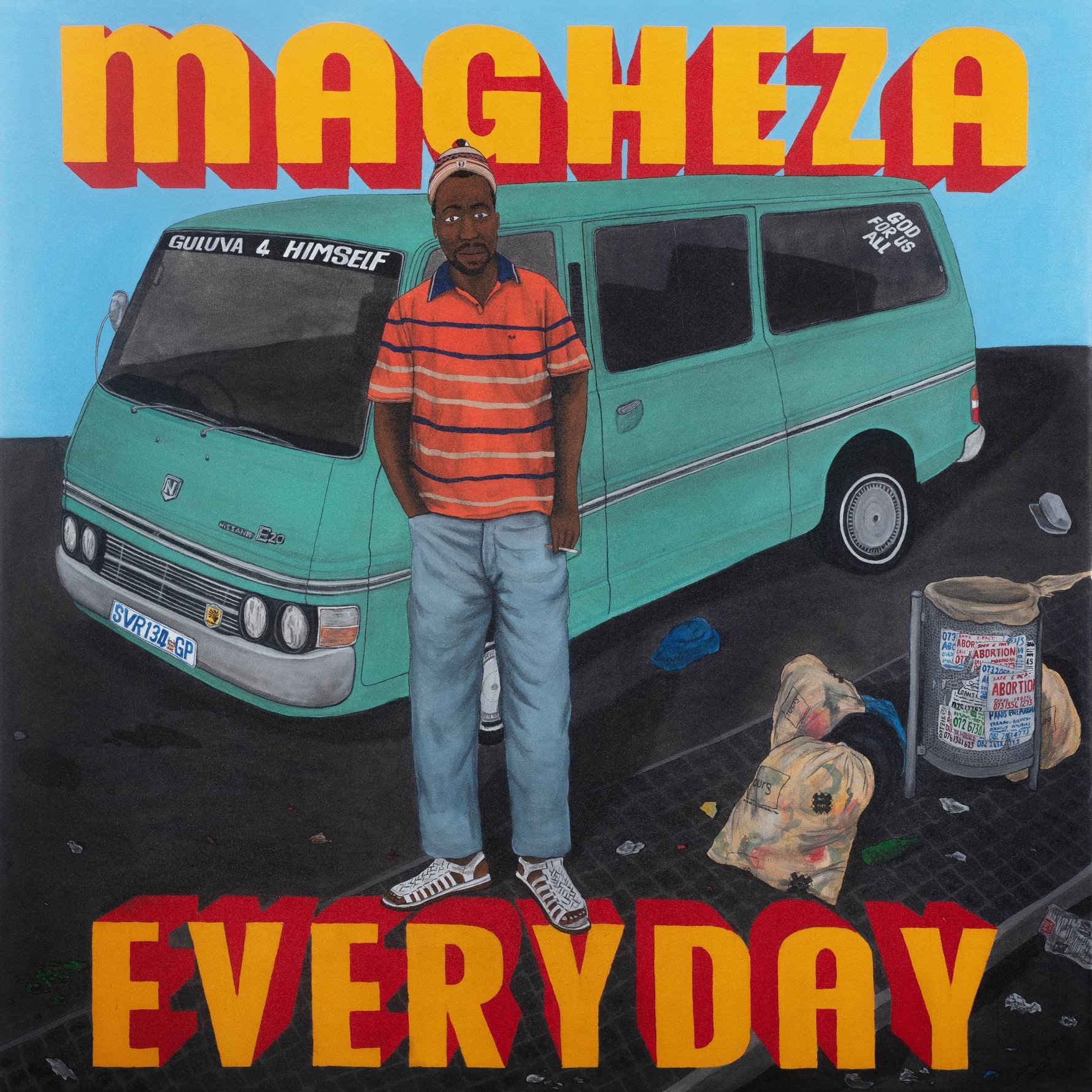
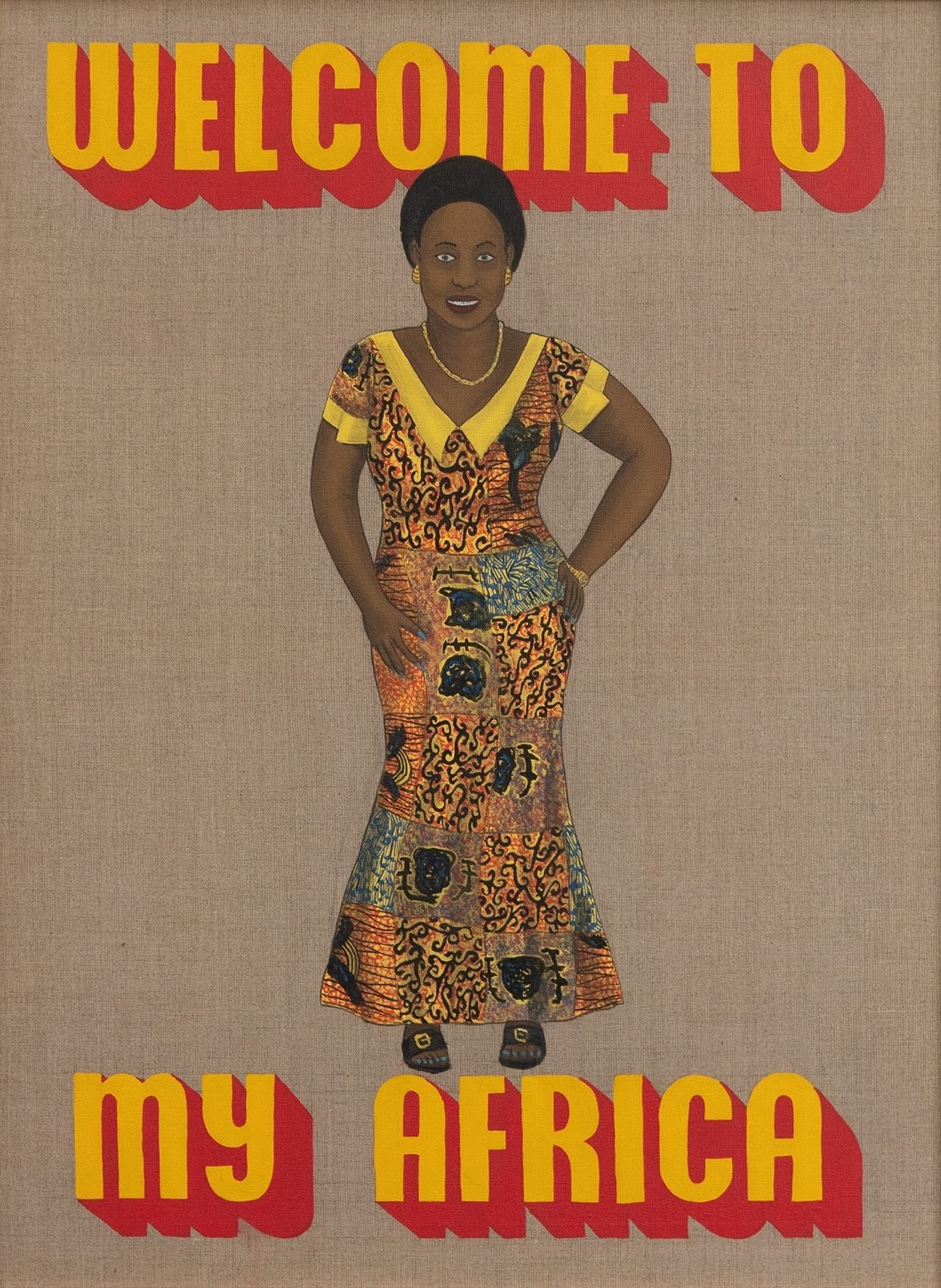
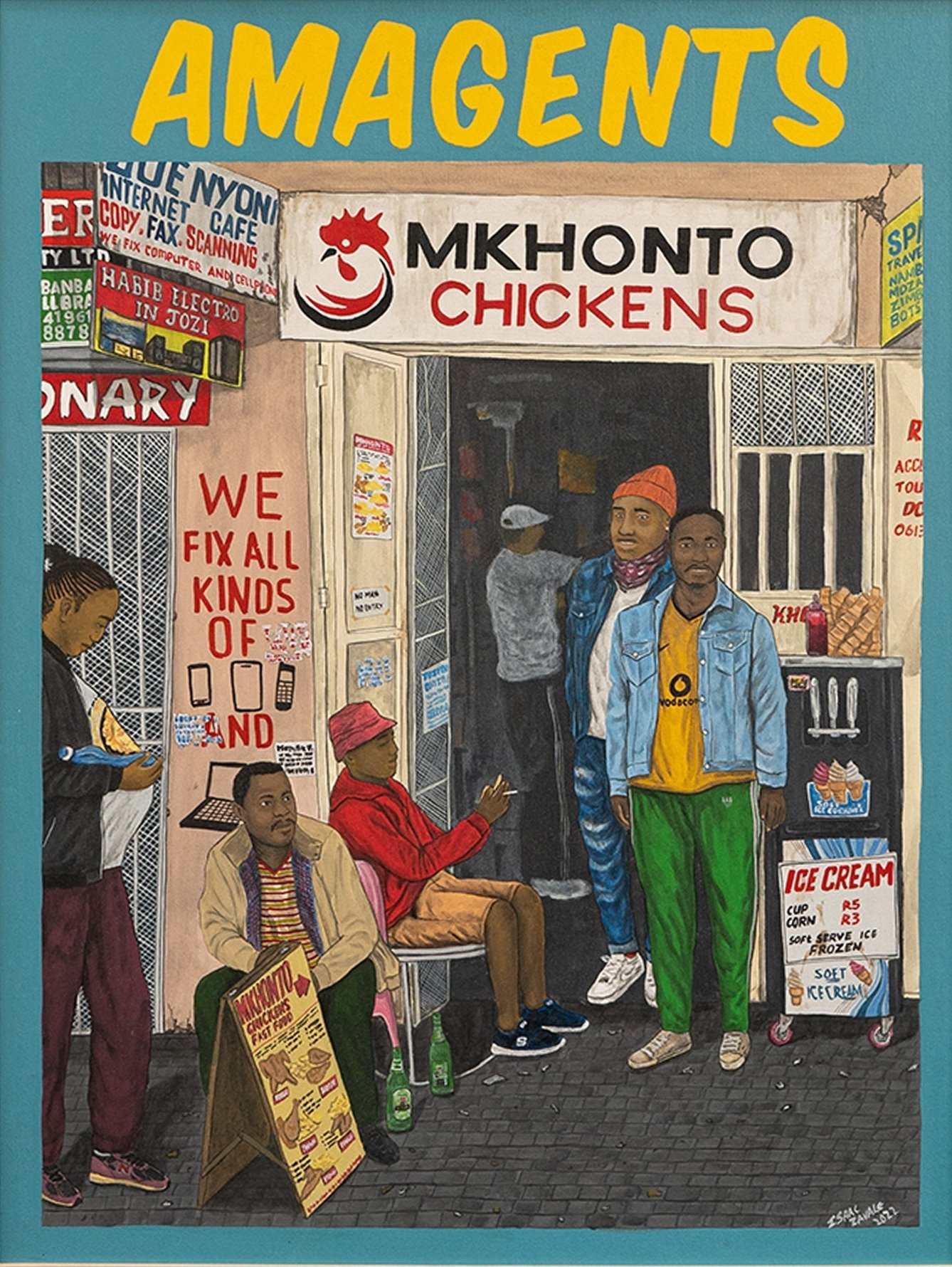




Comments